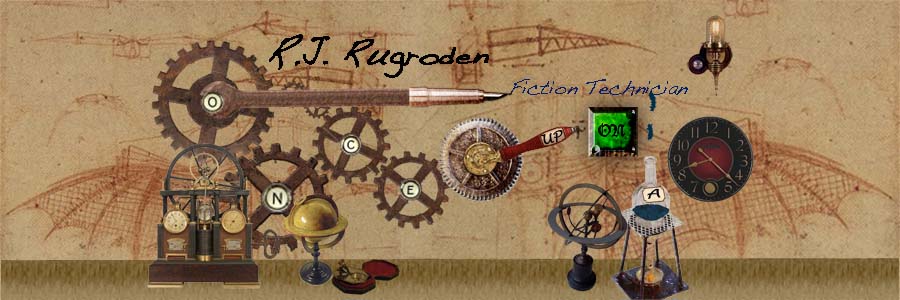The Muse
Wouldn't it be great if there was a god up in the heavens somewhere who could come down, sit on your shoulder, and whisper the perfect words for you to write that would inspire man to great and glorious expressions?
If there were such a thing, it would be called
a muse.
The Muse comes from Greek Mythology. Originally there were nine (some contend for three) of them. They were goddesses. Daughters of the gods who came down to us mortals every now and then to inspire great feats of art, literature, music, etc.
Many writers throughout time have written into their literature a small paragraph or more intended to beg that a muse would come down and help inspire their writing. Today, most writers just joke about it. "If the muse descends, I will make my deadline tonight." or "The Muse is absent. I can't write."
Whether or not the muses exist is not really important. What is important, is that every person who truly wants to be a writer must train themselves to write without the muse.
This is perhaps a myth that everyone's figured out already. I debated about whether this blog post would be useful, but yesterday I met a woman who works as a nurse. She said that she's always wanted to try writing a book.
Those words "always wanted" and "try" caught my attention. I couldn't help but think "If you've always wanted to, why haven't you done it?"
I also thought it sad that she said she wanted to TRY to write a book. I thought "You mean you haven't even TRIED to write?"
I hear plenty of people say that they've always wanted to be published some day. Or that they've always wanted to complete a book they've already started. But I felt a little sad that this wonderful person had never even tried. I doubt she ever will (though I hope I'm wrong).
Myth: Waiting for the muse, or for inspiration, is how all writers do it.
Truth: Inspiration is nice, but not necessary. Waiting for it can be fatal to the imagination.
Don't wait. Write today. Even if it's drivel.
I cannot say this enough. IF YOU WANT TO BE A WRITER........THEN GO BE A WRITER. DON'T WAIT.
Neil Gaiman once said he hears a lot of people tell him they want to be writers. In reply, he answers something along the lines of "If you're going to be a writer, you know you'll actually have to write, don't you?"
He said he can always tell the ones who are going to be writers by their response. They're the ones who nod their heads slowly and take him seriously. The other ones who aren't going to be writers just think he's trying to be clever.
Being an arm chair writer is not an option for me. I can't just read blogs about writing and publishing, read books about it, and tell my friends I'm going to be a writer someday. I need to actually write something. Even if it's trash.
The Carpenter Analogy
If I really wanted to become a carpenter, (just as much, let's say, as I want to be a writer,) what would I have to do?
Would reading lots of books about carpentry help? Yes. Would that make me a carpenter? No.
Would actually creating something make me a carpenter? No. It would make me a hobbyist. Would creating more than just a few projects make me a carpenter? Well, maybe. It's getting there. At this point, it's more about how much I choose to identify with the craft of carpentry.
But one consistent contributor to becoming a carpenter, as with writing, is PRACTICE.
Carpenter's don't practice with the good stuff. They practice with scrap wood.
Writer's have it easy. We don't have to spend money on wood. Whatever we practice with can be thrown out, but if it turns out being magnificent, well then we have something wonderful. There's no risk of failing if you just start out to practice. But every chance that it could turn into a success.
So why wait for the muse? There's writing to be done!
(Did I mention it's completely free? You don't have to pay for premium words or buy the really expensive materials in order to write the best story possible. Whether you succeed or fail, you loose absolutely nothing and will always gain from the practice.)
